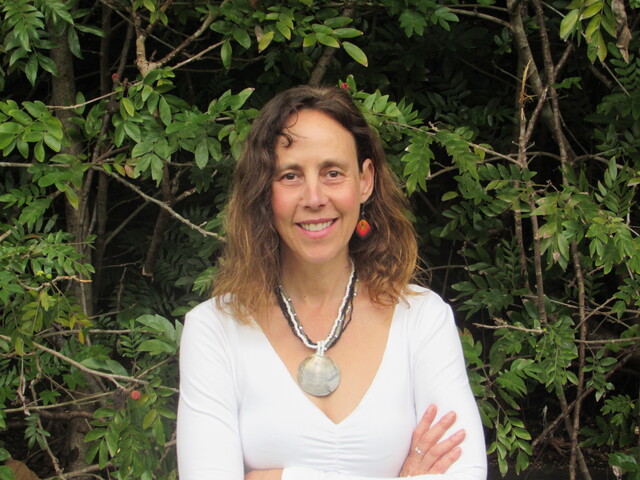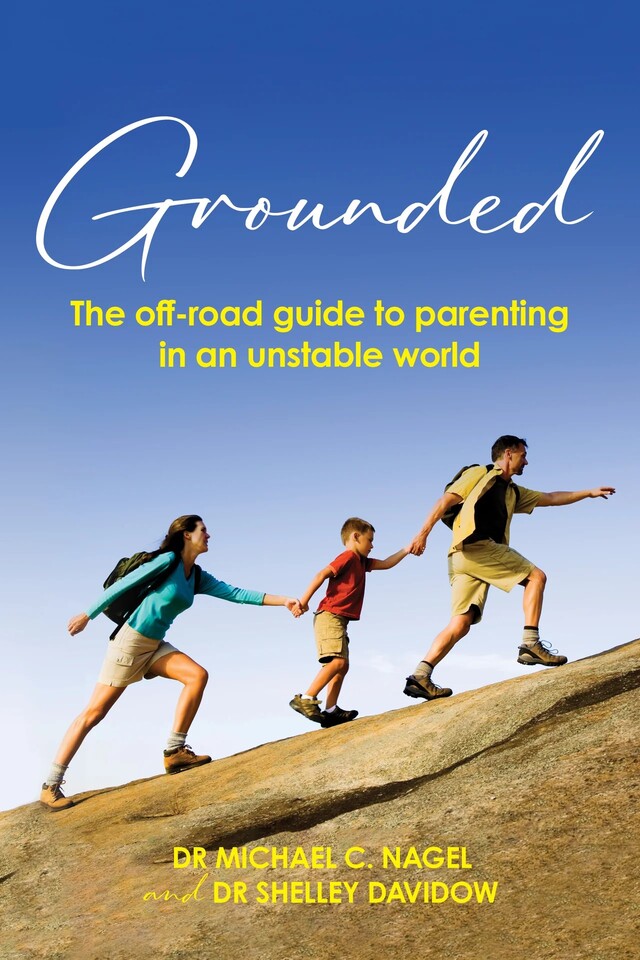By Casey Neill
“You are your child’s environment,” says Dr Shelley Davidow.
So the teacher and author says parents need to first put on their own oxygen masks before they help their children.
“Your body is the first and most important instrument in the orchestra of your child’s life,” she said.
“It’s almost like tuning our instruments so we’re ready to be played – we’re more likely to have a measured, calm, loving response, a steady response to whatever’s happening.
“You as the parent have the most profound connection to your child.
“Your body needs to get taken care of because that’s what’s going to respond to your child’s needs.”
Shelley is originally from South Africa but now calls the Sunshine Coast home.
“I’m just passionate about living life to the fullest and supporting people to live their best lives,” she said.
“What story do you want to tell about your life today?
“We can tell a story of ‘terrible things always happen to me’ or you can tell ‘it’s the 12 labours of Hercules and I’m on number 11 and it’s going to be hell but I’m going to get through it’.”
Shelley has spent more than a decade working in schools and with parent bodies, “To really help parents reduce their stress, to practice being in a state of automatic nervous system balance”.
“When you are in that balanced state you are so much less likely to overreact,” she said.
“When you are caught in a continuous fight or flight or freeze, your body is not designed for that on a long-term basis.
“I think a lot of parents are caught. ‘Are we doing the right thing? Are we parenting in the right way?’
“My message is about coming back to the most fundamental things that we all know, but sometimes we need reminding.
“Love and gratitude have the most powerful impact on your physiology and the physiology of the children around you.”
She recently co-authored Grounded: The off-road guide to parenting in an unstable world with Dr Michael Nagel.
“What Mike and I are talking about is how parents need to put their own oxygen mask on first before they help others,” she said.
“Take those two minutes.”
Shelley said to breathe in for five counts, then out for five, “Just focusing your attention on the area of the heart, then actively feeling gratitude or love or care for something or someone.”
“Bring that feeling of gratitude into your heart until you’re actively feeling it,” she said.
“You sustain that for at least two minutes.
“It changes your physiology.
“It actually can change your entire heart rhythm pattern.
“It changes the heart rate variability of the children who are close to you.
“It’s something I would do in the morning or in the grocery aisle when my 3-year-old is throwing a complete tantrum.
“The worst thing we can do is stoop to the level of the fray.
“Pick yourself up and move on.
“The best for them is if you’re calm.
“We get caught up trying to rationalise with irrational little beings.
“You can say, ‘I hear you, I love you, we’re not getting that right now’.”
She stressed that there is no quick fix when it comes to parenting.
“People can’t say, ‘When your child does this, do that’,” she said.
“In the end, it’s your steadiness that is going to help them be steady.”
But “expect things to go pear-shaped”.
“Life is like this wiggly, unpredictable road,” she said.
“We strive to be good humans but sometimes we all do shitty things.
“Forgive yourself, kiss yourself better.
“I have been grumpy and rough in my words with my kid and my classes and the next day I’ll go back and say, ‘Hey, yesterday I was so grumpy, I’m really sorry’.
“Expect everything to go pear-shaped a lot of the time, because when you’re parenting things are going to go wrong.”
Shelley encouraged parents to model the kind of fixing they wanted to see after things had gone pear-shaped.
“We find out what happened, who’s been hurt, how have they been hurt…” she said.
“How do we make this better? What needs to happen to make this better?
“I had a rule in my classroom and in my house that if something’s broken, we do everything we can to fix it.
“There’s no point playing the blame game. Everyone who’s part of the problem is part of the solution.”
Shelley’s child is now ‘grown’ so she has “only three jobs and a writing career”.
“I think I’m very energetic and inspired about different things,” she said when asked how she juggled it all.
“I do not sit around to relax and watch movies.
“I write a book instead.
“The things that relax me are considered work for other people.
“Relaxing is sitting with my laptop or with my journal and jotting down ideas.
“That entertains me.
“At some level it might be a survival instinct.
“I come from a long line of refugees and I grew up in a very tumultuous South Africa.
“Surviving is the first thing that you have to do.”
Shelley doesn’t sit down at a designated time and place to work on a project.
“I’m very opportunistic in terms of writing,” she said.
“I do it in the cracks between.
“Maybe I have ADD.
“There’s no such thing as sitting with writer’s block.
“I go from one thing to the next.”









